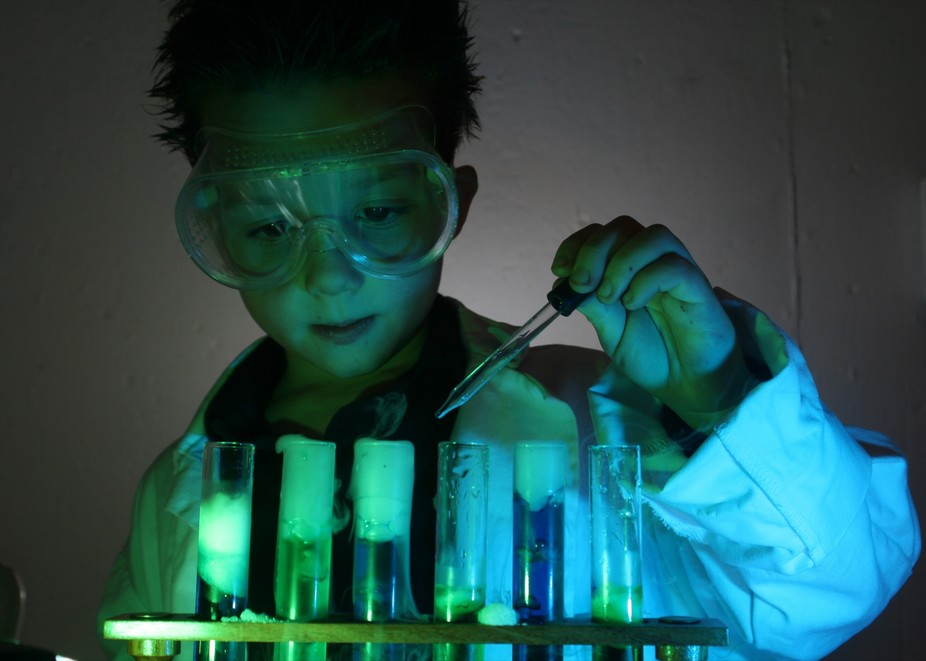26 of the Best 5th Grade Science Projects and Experiments

Are you looking for science activities to do with your 5th graders? No sweat. We have you covered. Check out our list of 26 science projects and experiments that you can try with your 5th graders this month.
- Hand-Eye Coordination and Age | All-Science-Fair-Projects.com – Grades 2-5, Use a stopwatch and ping-pong ball to find out how hand-eye coordination changes as children get older.
- What Do Yeast Eat…and How Can You Tell? | Education.com – Grades 2-5, The objective of this project is to examine which foods yeast cells eat.
- How Do Antacids Work? | Biochemistry Discovery Lab – Grades 3-6, Simulate out how antacids work to treat heartburn by using fake stomach enzymes.
- Mice & Music | Hubpages.com – Grades 3-6, Find out if music affects the performance of mice in a maze.
- A Magnetic Primer Designer | Sciencebuddies.org – Grades 3-6 Biology project that utilizes magnets to mimic the process that scientists use to replicate DNA, using the polymerase chain reaction.
- Growing Bacteria in Petri Dishes | Stevespanglerscience.com – Grades 3-6 biology In this science fair project, you must find samples of bacteria from an assortment of surfaces to find the surfaces that are the dirtiest.
- Effects of Ozone on Plants and Health | Julian’s Science Fair – Grades 4-6, Environmental conditions can dramatically impact plant growth and germination. Does increased ozone stunt germination and plant growth? Grow some plants and find out.
- Making Batteries from Fruits and Vegetables | Sciencebuddies.org – Grades 4-7, Use veggie power to build a simple battery from a variety of vegetables. Which ones are the most powerful?
- How Water Beats Rock | Education.com – Grades 1-5, Discover how water is more potent than rocks. Experiment with ways that water can break the stone.
- Soil Type and Liquefaction | All-Science-Fair-Projects.com – Grades 1-5, Experiment with sand, clay, and loam and find out which type of soil dissolves most easily.
- Effects of Temperature and Humidity on Static Charges | Education.com – Grades 1-5, Use balloons, a rubber ball, and a scarf to investigate why those socks stick together when you take them out of the dryer and how conditions in the air affect static electricity.
- Dig This: Biodegradation | Education.com – Grades 2-6, How do organic materials become soil? This science experiment measures which materials biodegrade.
- Geology 101 | Education.com – Grades 2-6, Water carries lots of soil and minerals in a creek. In this project, you’ll examine the behavior of water and gravel in creek beds and the formation of sedimentary rocks.
- Geothermal Power Plant Model | Energyquest.ca.gov – Grades 3-6, Use a pinwheel and a can of boiling water to simulate geothermal power production. Determine how to generate the most energy from your “power plant.”
- Egg Substitutes | Sciencebuddies.org – Grades 3-6, Many people avoid eggs because of allergies or diet preferences. But eggs play a vital chemical function in baking and cooking. Evaluate the ability of egg substitutes to mimic their binding, leavening, or thickening properties.
- How Much Water is Required to Cook Pasta? | Sciencebuddies.org – Grades 3-6, We’re used to cooking our pasta in a big pot of boiling water. Do you actually need that much water, time, and energy to cook pasta? Perform some experiments to find out.
- Building the Best Bridge | Education.com – Grades 3-6, This project helps students develop an understanding of architecture and engineering through experimentation of which shapes are the most structurally strong.
- Rubber Bands for Energy | Sciencebuddies.org – Grades 3-6, Put the energy of rubber bands to work and learn about the relationship between potential and kinetic energy.
- Properties of Pendulums | Illinois Institute of Technology – Grades 3-6, Pendulums have been used for timekeeping for hundreds of years. Find out how changes in mass and length affect the oscillation of a pendulum.
- Bust That Rust! | Education.com – Grades 3-10, Investigate the chemistry of rust and the oxidation process. Younger students will use steel wool, water, salt, and vinegar. Older students will explore the chemistry of rust.
- Wind Around the Home | Education.com – Grades 4-6, Learn about wind speed and duration and different locations around your home. Determine the best site(s) for a windmill.
- Arch Magic: The Unbreakable Egg | Education.com – Grades 4-7, Tell you, folks, tonight is a good night for an egg dinner. Use the eggshells to explore how arches distribute weight. Demonstrates the power of arches by asking students to pile telephone books on top of eggs without damaging them.
- How a Comet’s Size Affects How Fast It Melts | Sciencebuddies.org – Grades 4-7, Comets are often compared to giant, dirty snowballs, and the comet tail you see in the sky is evidence of melting. In this project, you’ll use figure out how the size of a comet affects its melting rate.
- Make an Electromagnet | Energyquest.ca.gov -Grades 4-7, Learn how to create an electromagnet from batteries, wire, and a knife switch. How does changing to kind of batteries used affect the power of your
- Bombs Away! A Ping Pong Catapult | Science Buddies.org – Grades 4-7, They fly through the air with the greatest of ease. Find ways to put a ping pong ball accurately on target time after time.
- The Mechanics of Carnival Games | Sciencebuddies.org – Grades 5-8, Find out why those carnival games are so hard. Learn the fundamental laws of science that help the concessionaires engineer the games in their favor.




